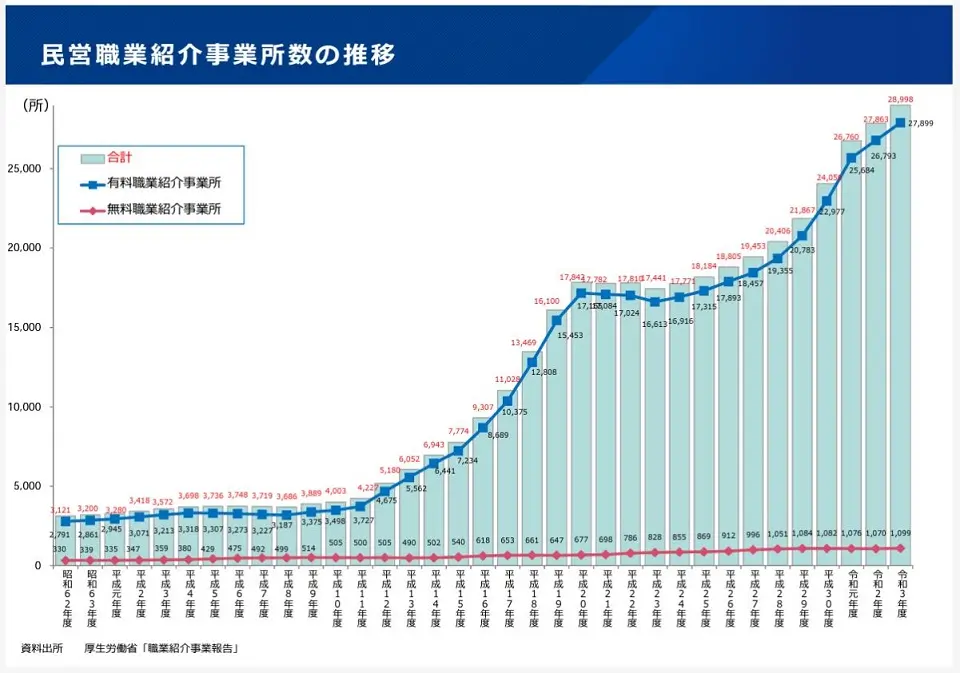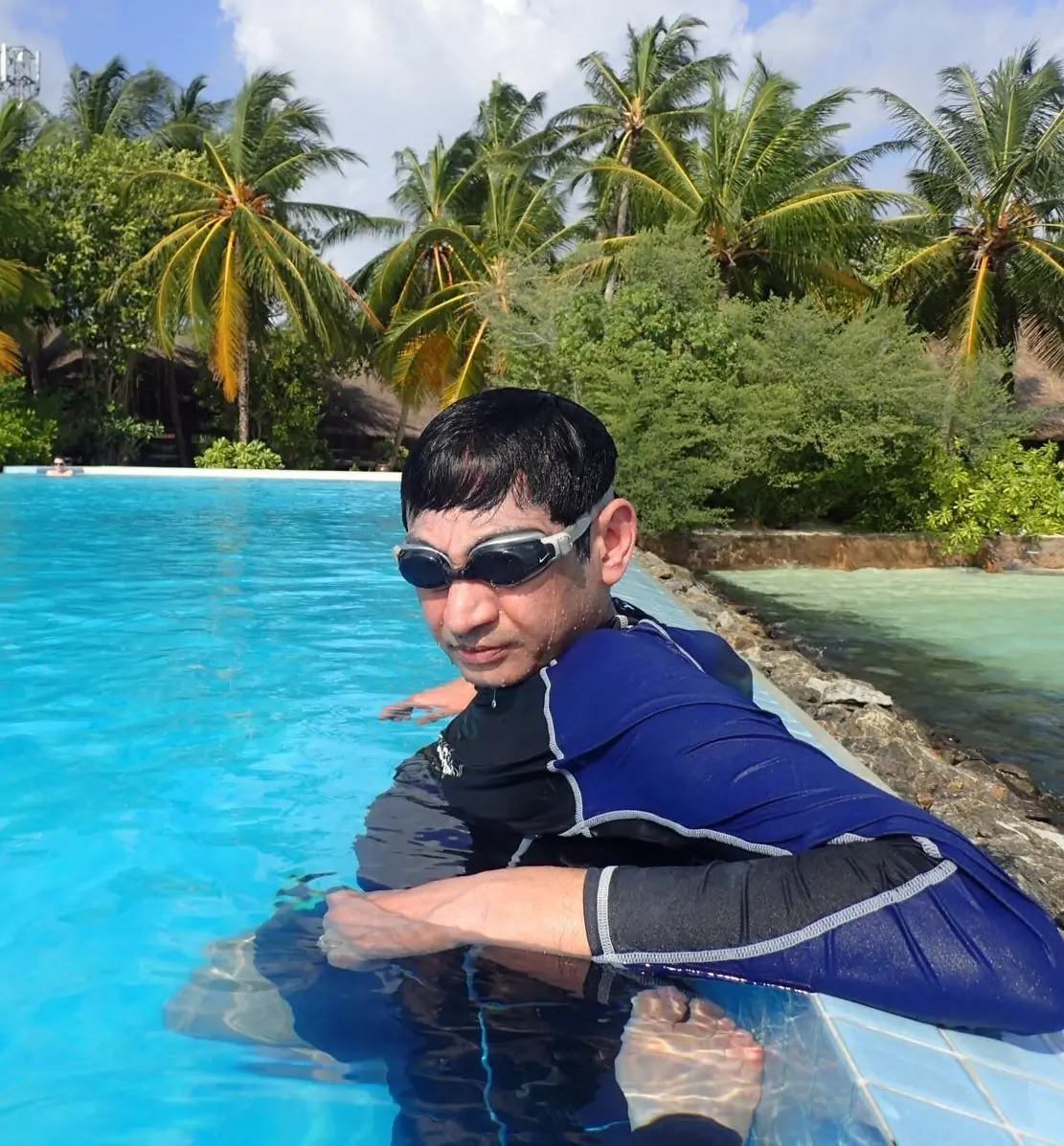Recruiters in Japan: Finding and Using the Right One

Japanese employers tend to depend heavily on recruiting agencies or “Head Hunters” for their hiring needs. So, if you are looking for a job in Japan, it will be very helpful to know about the types of recruiters and how to use a recruiter effectively.
With the advent of the internet and smartphones, job searches have become quite easy, but landing a perfect job remains challenging.
This article will discuss the ‘Why,’ ‘How,’ and ‘What’ of effectively using a Recruiter or a Head Hunter in Japan to find a satisfying job.
However, before we move forward, we should know that, unlike many Western countries, the term ‘Head Hunter” is not used in Japan. The widely used term in Japan is Recruitment agency (jinzai shoukai gaisha) or Recruiter.
“The Why”: Why Use a Recruiter in Japan

Unlike in the past, when print media was the only source of information about available jobs, searching for available jobs is not a big deal in today’s world.
There is, of course, print media, but then there are countless other sources. These sources include companies’ websites, numerous job boards, recruitment companies, job fairs, own network, and referrals.
However, having more sources does not make finding the right job easier because this can sometimes be overwhelming and confusing.
Job boards are a common way to get hired, but we all know the real way to find your dream job is through connections, especially in Japan.
Many people do not think about it from that angle, but having the right recruiter on your side is as good as a connection. The recruiter is connected with the employer and hiring managers there, and now the recruiter is connected with you. It means you have an indirect connection with the company, with the recruiter as the bridge.
As a newcomer to Japan, you likely will not have the same connections here as native Japanese who could build those professional relationships through family and school. Even if you are not a newcomer to Japan, you cannot depend solely on networking to find the desired job.
Applying Directly Vs. Using a Recruiter in Japan
At times, you may wonder if it’s better to apply for a job directly than using a recruiter in Japan.
Many job aspirants think applying directly to a hiring company would be the best way to get hired, especially in Japan, where recruitment companies charge a fee of 30% to as high as 50% of annual gross salary. The logical thought process is that employers would prefer direct applicants to save the money they otherwise need to pay the recruiters. However, it is not as simple as that.
Why Using Recruiter is Better in Japan?
Companies receive an overwhelming number of direct applications for the advertised jobs. Many applications do not fit the job requirements, and shortlisting all those applications can be a herculean task that can consume too much bandwidth for the hiring companies to be cost-effective.
Moreover, there is always a possibility that your application may get lost in the pile of applications and not come to the notice of the internal recruiters, even if you are a perfect fit. Applying directly may often make you lose the opportunity to land the desired job. The same is often true with even job boards.
Companies hiring through a recruitment company receive already shortlisted and vatted candidates. This saves employers a lot of time and money. And you can rest assured that your application will not be lost in the pile of hundreds of other applicants. This is one of the reasons why applying through a recruiter is often more effective for candidates.
Recruiters are paid a commission by hiring companies for placing people.
Due to Japan’s aging population, the job market is very competitive. The unemployment rate is extremely low compared to most places, and fresh graduates can find jobs relatively easily. Therefore, companies are willing to pay for good talent, especially in competitive industries like Finance and Information Technology.
“The How”: How to Find a Recruiter in Japan

Over the years, the need for recruiters has continuously increased in Japan.
According to the Japanese government statistics, out of Japan’s total population of 124.63 million in 2022, the working-age population between the age of 24 years to 60 years was 54.82 million. The statistics may surprise some people, but according to the Japanese Ministry of Labor, Health and Welfare data, 27,899 registered recruitment companies in Japan worked for a fee during the same year.
Growth of the Number of Recruitment Companies in Japan
The following graph shows recruitment companies mushroomed from 3121 in 1987 to 27,899 in 2022.

How do you find the right recruiting agency among the staggering number of recruitment companies in Japan? Before discussing selecting the right recruitment agency for the desired type of job, let’s look at the types of recruiters in Japan.
Types of Recruiters in Japan
The very first classification of recruitment companies in Japan is based on spoken language. These categories are as follows:
- Recruitment Agencies for jobs not needing English skills
- Recruitment Agencies for bilingual candidates and jobs
- Hybrid
The second classification of recruitment companies is based on size. These are as follows:
- Very large global multinational companies
- Mid-sized recruiters with 10 to 50 recruitment consultant
- Boutique recruiting agencies
Please note that there are some very large Japanese recruitment companies, but we have not included them in classifying the type of recruiters above. The reason is that those large Japanese recruiters focus mainly on Japanese clients who do not need bilingual skills. As a foreigner looking for bilingual or only English-speaking jobs, you may not find them useful.
Recruiters for Bilingual Candidates
Many recruitment companies, which are large foreign companies with Japanese operations, primarily focus on bilingual candidates with Japanese and English skills.
However, many such agencies are founded by foreigners in Japan as Japanese organizations. Again, there are some quite large agencies, along with mid-sized and smaller recruitment companies.
Recruiters Focusing on Jobs Not Requiring English
Most jobs in Japan do not require English skills. These jobs are mainly for Japanese domestic companies. Recruitment agencies that work for such job requirements are mainly Japanese agencies. Some of these are huge, but there are also mid-sized and small recruiters.
Hybrid Head Hunters
Both of the above types of recruitment companies also deal with jobs that may not require bilingual candidates. However, in principle, they have a clearly defined focus, as mentioned above. The hybrid recruitment companies are mainly some of the large domestic ones that focus on bilingual requirements and their original business of only Japanese-speaking candidates, mainly Japanese natives.
Other types of Recruiters
Apart from the above classification based on spoken language requirements, several general recruiters deal with various jobs across different industries. Then, some specialized recruiters only do recruitment for a specific job market, such as IT, game development, or health care. These recruitment agencies focusing on specific industry types are generally mid-sized and smaller.
Finding the Right Type of Recruiter in Japan
The first step in finding the right recruitment company is determining whether you wish to work only in a bilingual environment or are open to a traditional environment with only Japanese as the official language.
As this article is mainly meant for bilingual candidates in English and Japanese and for foreigners who may not even know Japanese, the second and third types of recruiters focusing on bilingual jobs and candidates are unavoidable.
However, if your Japanese skills are close to the native level, and you are open to working with a traditional setup with only Japanese as the official language, I would advise you to approach all three types of recruiters.
Selection of the Agency with Size as a Criteria
There are pros & cons of working with big agencies and mid-sized or smaller agencies. Let’s have a look at the comparative study of the agencies according to their size:
Very Large Recruiters
The advantage of finding a job through large recruiters is your reach through their reach. Large agencies naturally have a broader reach with a large number of clients. It is advisable not to ignore these big recruiters. However, the disadvantage is the possible lack of focus and personal touch.
These large agencies work with a large number of clients and with a huge candidate pool. Though the consultant who may be your contact point may not be dealing with many clients, it would certainly be more than that of a consultant of a mid-sized company will be dealing with.
Moreover, large recruitment agencies have big and stiff top-line and bottom-line targets for recruitment consultants. Their consultants’ monthly reviewed target achievements make them focus on revenues rather than individual candidates.
Mid-Sized Recruitment Agencies
The fact that they are not small, even though they are not very large, many times because of their age indicates that they are successful.
The pros of finding a job through these companies are that even though they would be working with fewer clients, their client and candidate focus is higher than that of large companies. You will get enough personal attention from them. Typically, their relationship with the clients is much more personal and stronger than most large agencies.
Like the large ones, I advise you never to ignore the mid-sized recruitment agencies to be assured that you will benefit from their focus and approachability.
However, it is critical to ask them about their client list. If they talk about confidentiality, do ask them if they work with any specific clients you are interested in working with.
Another piece of advice here is to work with selected agencies and not with many of them. The reason is that, at times, your resume may reach the same client from multiple recruiters, making the client think you are desperate because you cannot find a job.
Tips for Selecting Mid-sized Recruitment Companies
Following are some of the steps which will help you find the right agencies:
- Check the agency’s website and see if they frequently add content apart from their introduction. Generally, agencies that invest in creating and publishing helpful blogs for candidates and clients show that they are more focused on growing by being helpful.
- Do check their company’s LinkedIn page to see how active they are in posting content and jobs. You should also check how many followers they have and how people react to their posts.
- Check their reviews on Google and other review websites like “Trust Pilot.”
- Do check the agencies’ founders’ LinkedIn profiles to see their professional backgrounds and whether the profiles are good enough to instill confidence in their professionalism.
- The agency’s LinkedIn page contains the profiles of its recruitment consultants. Check the profiles of these consultants to determine the attrition level, the strength of their profiles, and any reviews left by the candidates they placed.
Small-sized Agencies
These are boutique agencies with under one to five employees recruiting a limited number of clients.
You should not simply write them off because of their size. The fact is that many such small agencies work for just a couple of clients with whom they may have very strong relationships. Please note the word ‘May” here. If they have a client who is your target employer, working with such small agencies makes sense.
However, it may not be easy to select such companies based on their words; hence, it’s like a lottery – it may work.
Some More Important Tips
Avoid Applying Through a Recruitment Company After Applying Directly
Gone are the days when a recruiter would send your resume to the employer by email, and the employer would not realize that they already have your application.
Nowadays, every professional company uses ATS (Applicant Tracking System).
When a recruiter uploads your resume to a company’s ATS portal, the system will automatically find out if your resume is already there. In such a case, your application will automatically be rejected. This will be a loss of an opportunity for you, even if your profile meets the selection criteria.
In case you have applied directly or through any other agency, be honest with the recruiter to tell him so, along with the date you applied in the past.
Please note that the previous application date is crucial because every employer has a cooling period which is typically 6 months to 12 months. If your previous application was before this cooling period, then your new application will again be considered a fresh application.
Make Sure that the Recruiter Informs You Before Applying
Most agencies follow professional ethics to get your permission before sharing your profile with a client. However, there are always some agencies that may not follow ethics. Such companies may share your resume with multiple clients for roles that do not even suit you without asking you. This will hurt your chances when there is a job opening with that employer that matches your profile, and you wish to apply for the same.
Keep Your LinkedIn Profile and Resume Up to Date
These days, many recruiters can be found online through sites like LinkedIn. They actively post about the positions they are trying to fill and openly welcome messages online from potential candidates. In addition, recruiters will often contact people who also fit the requirements for a job through LinkedIn, so be sure to maintain the LinkedIn profile and keep the resume up to date.
Please ensure that your resume is 2 to 3 pages and, in no case, should it be over 4 pages. Please also check this article for some good tips for your LinkedIn profile.
Whether you choose a recruiter who is part of a firm or an independent recruiter, try to choose a recruiter with a history of successful placements. In addition, they will likely have a strong network of contacts in their given industry and might be able to negotiate better pay or introduce you to jobs not advertised online.
“The What”: More Precisely Which Recruitment Companies

We will discuss some of the leading large and mid-sized recruitment agencies you can use to find a job in Japan.
Please note that this is not a recommendation but a listing of some leading agencies based on market information. Please also note that the order on this list does not say anything about the quality of these recruitment companies.
Recruiters Focusing on Bilingual Candidates
ReachExt K.K.
With the mission statement “Extending your Reach,” ReachExt is a mid-sized, fast-growing recruitment company headquartered in Japan. It has a group company in India and a presence in the Philippines. ReachExt focuses on permanent jobs and Gyomu-Itaku contracts for mid-career to senior roles in Information Technology.
en world
Part of the en-Japan group, En World has been in the recruitment business since 1999 and has a presence in Japan and throughout the APAC region. They work for recruitment for both permanent and contract jobs.
Robert Half
One of the oldest recruitment companies, Robert Half, was founded in 1948 in California, U.S., and grew to have 300 locations worldwide. They work for recruitment of both permanent and contract roles with a focus on accounting, finance, financial services, and technology areas.
Michael Page
Part of the Page Group, Michael Page was established in 1976 in London, U.K., and over the years, grew to be a multinational company with 9,000 employees in 2023 and a presence in 36 countries. They started their Japan operations in 2023 and established themselves as a major player in the recruitment industry.
Michael Page Japan’s operation started to serve mainly foreign multinationals in Japan (Gaishi), but then it expanded to serve domestic Japanese companies (Nikkei). They work for permanent and temporary positions.
Robert Walters
Robert Walters was founded in 1985 in London and expanded to 31 locations worldwide, including Japan, by 2023.
They started their operations in Japan in the year 2000. With offices in Tokyo and Osaka, they serve permanent and contract jobs across all business domains and roles.
Computer Futures
Computer Futures is part of the ‘SThree’ group, established in London in 1986. As the name suggests, Computer Futures works in recruitment for information technology. Out of their presence in 10 countries worldwide, mainly in Europe and the USA, Japan is the only country in the APAC region where Computer Futures is present.
Wahl + Case
Wahl + Case is a mid-sized Japanese recruitment agency established in 2010 in Tokyo. They serve employers to recruit tech candidates, mainly in the information technology domain.
Hays
Founded in 1867 as an operator of wharves and warehouses in the U.K., Hays repositioned itself as a specialized recruitment company in 2003. Hays operates in 32 countries, including big operations in Japan.
Hays works for both permanent and temp recruitments, focusing on technology and accounting & finance jobs.
JAC Recruitment
JAC was established in 1988 in Japan as a subsidiary of the JAC (Japan Agency & Consultancy) group in London. They serve companies and candidates for permanent and contractual roles across various business domains and roles.
Morgan McKinley
Established in 1988 in Ireland and with operations in 10 countries, Morgan McKinley in Japan offers recruitment services covering the full spectrum of permanent and contract jobs and executive search services. They focus on technology, accounting & finance, AND banking & financial services jobs.
RGF Professional Recruitment Japan
RGF is part of Japan’s largest HR Services company, “Recruit Group.” They specialize in permanent jobs across various industry domains and roles with contingency and retained basis.
East West Consulting
Established in 1987, East West Consulting is a mid-sized recruitment focusing on bilingual recruitments for the services sector, retail, medical, manufacturing, construction & real estate, and information technology, among other industries.
Skillhouse
Skillhouse Staffing Solutions was established in 2004 by Mark Smith to focus on permanent and contract jobs (Haken) in the information technology domain. However, they occasionally cover other roles like office administration, etc.
Specialized Group
Specialized Group is a mid-sized Japanese recruitment company focusing on recruitment for bilingual jobs across various industry verticals and job roles.
Nexus Corporation
Nexus is a mid-sized recruitment company for permanent and contract jobs, mainly in information technology.
Fidel Consulting
Part of Fidel Technology K.K., Fidel Consulting supports bilingual staffing for information technology professionals.
Spotted Recruit
The permanent recruitment arm of Spotted K.K., Spotted Recruit, was established in 2016 to focus on startup recruitment services.
Fair Inc.
Fair Inc. also provided recruitment services to foreigners in Japan, among other businesses, such as study abroad counseling, admissions procedures, and local support.
Agencies with a Focus on Jobs where English is not Mandatory
Recruit
Recruit is Japan’s largest HR services company, providing recruitment services focused mainly on Japanese domestic companies.
Persol Career
Persol Career offers recruitment services for new graduates as well as mid-career and senior-level recruitments in Japan and enjoys a good reputation in Japan.
Outsourcing Inc.
Established in 1997, Outsourcing Inc. offers recruitment services mainly for permanent hiring, apart from other business lines related to outsourcing.
Pasona Career
Pasona Career is a company established by Pasona Group in 1976. They offer both permanent and contract recruitment services in Japan.
NISSO
Nisso specializes in recruitment services for the manufacturing industry in Japan.
Spring Japan
Spring Japan is an Adecco group company with offices in Japan and Switzerland. It is a hybrid company that offers recruitment services for only Japanese-speaking native candidates and bilingual candidates and covers all types of industries.
What to Expect from a Recruiter?
Experience using a recruiter will vary from person to person and from company to company in Japan.
The first initial meeting with the recruitment consultant will likely be over the phone so they can gauge your seriousness about the job search and the type of jobs you are looking for. From there, recruiters will send you information on potential jobs that fit your skills and interests.
If a job interests you, the recruiter will submit your application to the company and wait for them to express their interest in your profile. If the prospective company is interested in your profile, you’ll be invited to go through the interview process and hopefully be selected for the job.
Independent recruiters might be a little more informal in their approach. For example, it is common to be invited for coffee for the initial meeting. Since these recruiters likely have stronger, more specified networks of industry connections, they will want to understand your personality, interests, and experience before introducing you to a client.
The job market in Japan is competitive and can be discouraging for young foreign professionals with little experience. Using a recruiter can help alleviate the job search stress in Japan.
Many job hunters have found success and landed the jobs of their dreams through a recruiter. As the demand for better talent is increasing, Japan continuously has more opportunities for foreign talent to find jobs in Japan.
Conclusion
If you want to find a job in Japan from abroad or change jobs in Japan, you cannot avoid recruiters or headhunters.
As mentioned in this article, hiring companies are highly dependent on recruitment agencies for their hiring needs, and there are close to 28,000 recruiters in Japan—27,899 recruitment companies in 2022, to be precise.
There are many different types of headhunters or recruiters in Japan. To summarize, recruiters in Japan can be classified based on domestic vs. foreign multinational agencies, the size of the recruitment company, and the domains they focus on.
While hunting for a job, you must carefully select the recruiters who best meet your needs. This article focused on finding the right recruiter in Japan and effectively coordinating with them. I hope that it will be helpful for you to find the right recruiter to find the right job in Japan.

A long-term ex-pat in Japan, Himanshu comes with an IT background in SAP consulting, IT Business Development, and then running the country operations of an IT consulting multinational. Himanshu is the co-founder and Managing Director of ReachExt K.K. and EJable.com. He is also an Advisory Board Member of a Silicon Valley AI/IoT startup.
